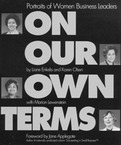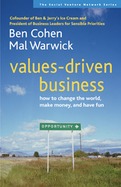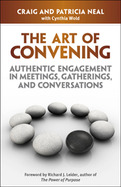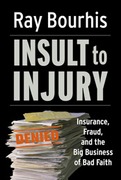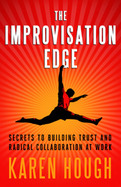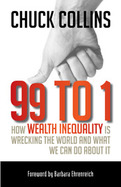1995
The press-dubbed "Decade of the Woman" has concentrated on political and social achievements of American women. In a quieter, but equally vital arena, women have been wielding their influence in the business world for some time. Yet, their accomplishments go largely unnoticed by the press, robbing the public in general-and aspiring women in particular-of much needed role-models.
On Our Own Terms fills the information vacuum by providing a look into the lives of 15 highly successful business women. This book profiles women CEOs and presidents of companies with gross annual revenues of $10 million or more, and gives recognition to women's achievements in business and life. Through personal interviews and intimate photographs, these women business leaders reveal how they broke through the gender barrier to achieve top executive positions, and how they learned to balance personal and work life in the process.
All of these women have had to make sacrifices to meet the challenges along their diverse routes to leadership. Rather than relying on the traditional business school model of how to succeed in the workplace, each of these women has invented her own path to success by drawing on the unique resources available to her-from her natural talents, to family values and ethnic heritage. All have relied on their own intuitive and distinctive approaches to business and life, and all have drawn extensively on their instincts and passions.
Although their businesses are varied-from railroads to television-their approaches to business have striking similarities. All rely heavily on intuition and a willingness to take risks. In their management styles, they tend to build consensus rather than dictate; they create "families" in an otherwise anonymous organizational environment. And they all emphasize the importance of integrating their businesses into the whole of their lives.
Their stories are as varied as their businesses--some climbed the corporate ladder, some inherited businesses, while others founded or bought their companies. Each story offers inspiration and useful advice that can be applied to any career or organization. In On Our Own Terms, these innovative women give candid, down-to-earth advice on issues ranging from employee communications to child day care. They offer useful advice on:
o Career planning,
o Customer service,
o Growing a business,
o Managing work and family life, and more.
The women selected represent a cross-section of American women in ethnicity, age, geography, and business experience. On Our Own Terms explores the struggles, sacrifices, challenges and triumphs they have experienced on their way to success.
- 15 women CEOs and corporate presidents tell how they got the top-on their terms-and how they learned to balance home life and work responsibilities in the process.
- A unique mix of photographs and personal interviews makes this an ideal gift book for women of all ages.
• The premier title in the Social Venture Network (SVN) Series--SVN is a nonprofit network of the most prominent socially conscious business leaders in North America, representing Ben & Jerry's, Working Assets, Tom's of Maine, Eileen Fisher, Clif Bar, and many others. Find out more about the series
• Combines the tried-and-tested wisdom of the co-founder of Ben & Jerry's and the chair of the Social Venture Network Advisory Board
• Concise and practical format includes a self-assessment tool, checklists, and other user-friendly features
• Listen to podcasts of Mal Warwick talking about Values-Driven Business on the Good Life radio show
2011
2009
- A compelling personal story that exposes how insurance companies get away with denying valid claims, terminating benefits, and destroying people's lives
- UnumProvident, the main company profiled in the book, has 25 million policyholders--over one out of ten people in the United States holds an Unum policy
- Recommends how to reform this corrupt and unjust system
Joan Hangarter bought a disability policy in 1990 to protect her should she ever become seriously ill. She dutifully paid her annual premiums for nearly a decade. But when she became disabled, she and her children found themselves homeless and bankrupt when her insurer--UnumProvident--stopped paying her benefits. With the help of attorneys Ray Bourhis and Alice Wolfson, Hangarter won a landmark $7.7 million jury verdict against Unum.
Through the compelling stories of ordinary people who have been driven to bankruptcy--or worse--when tragedy struck, Bourhis shows how the insurance industry runs roughshod over the very people it is paid to protect. He shows how the industry has become so insulated from accountability that neither lawsuits, punitive damage awards, federal court injunctions, newspaper headlines, nor television exposure can derail their determined efforts to turn a profit at any cost.
Bourhis, a national champion of policyholder rights, walks readers through both Joan Hangarter's heart-wrenching case and the stories of Susan McGregor, Stuart Gluck, John Tedesco, Laurie Hindiyeh, Eugene Molfino, Julie Guyton, Michael Baldwin, Margaret Santana, and numerous other claimants--real people with heart disease, AIDS, spinal injuries, brain damage, Parkinson's disease, and other disabilities whose benefits were cut off just when they needed them most. Bourhis shows how the world's largest disability carrier, UnumProvident, has relied on a host of shady practices--from surveillance to one-sided medical evaluations to policy re-interpretations-to target and terminate benefit payments.
Through these cautionary tales, he shines a spotlight on widespread bad faith double-dealing by insurance providers and details the key regulatory failures that enable these practices to continue unchecked.
- Find out more at www.book-insulttoinjury.com
- A compelling personal story that exposes how insurance companies get away with denying valid claims, terminating benefits, and destroying people's lives
- UnumProvident, the main company profiled in the book, has 25 million policyholders--over one out of ten people in the United States holds an Unum policy
- Recommends how to reform this corrupt and unjust system
2012
Brings together facts and figures showing what "the 99% and the 1%" divide means in the real world and the damage it causes.
Over the past thirty years, we’ve seen a radical redistribution of wealth upward to a tiny fraction of the population. Here, activist Chuck Collins explains how it happened and marshals wide-ranging data to show exactly what the 99/1 percent divide means in the real world and the damage it causes to individuals, businesses, and the earth. Most important, he answers the burning question, what can be done about it? He offers a common-sense guide to bringing about a society that works for everyone: the 100 percent. This is a struggle that can be won. After all, the odds are 99 to 1 in our favor.


